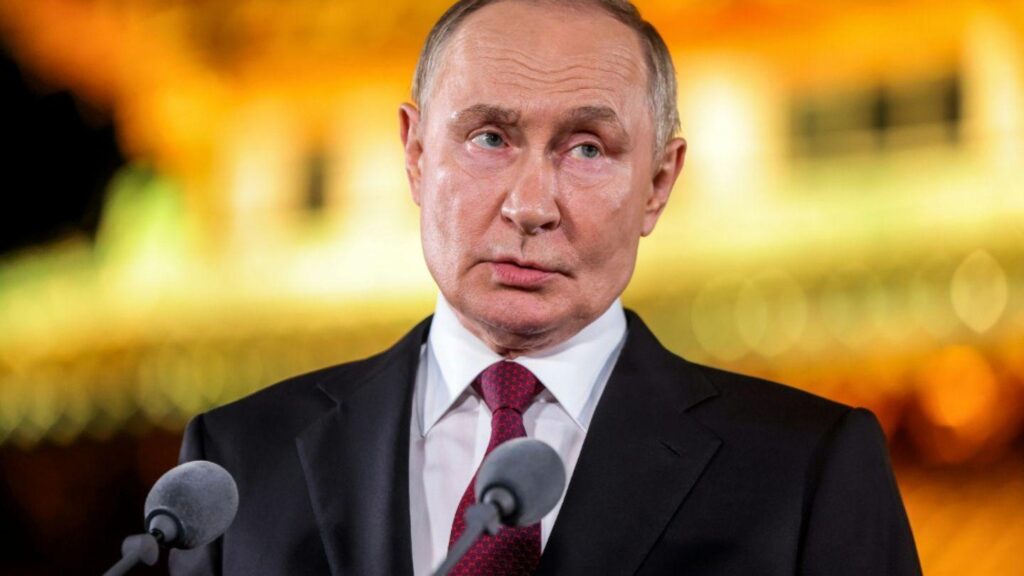In a significant display of geopolitical alignment, Russian President Vladimir Putin has arrived in Tianjin, China, to attend a pivotal security summit aimed at addressing pressing regional and global issues. The summit, which underscores the increasingly complex dynamics between major powers, brings together leaders and representatives from various nations to discuss strategies for cooperation and collective security in the face of rising tensions. As Russia continues to navigate its challenges on the world stage, the meeting in Tianjin represents an opportunity for Putin to strengthen ties with China and further consolidate alliances in a rapidly changing political landscape.
Putin’s Strategic Visit to Tianjin: Implications for Sino-Russian Relations
Vladimir Putin’s recent visit to Tianjin highlights a pivotal moment in Sino-Russian relations, as both nations seek to bolster their strategic partnerships in the face of global uncertainties. This high-profile meeting, taking place at a security summit, underscores the growing alignment of interests between Russia and China-particularly in areas concerning regional stability, military cooperation, and economic collaboration. The leaders are expected to discuss a range of topics that could further solidify their commitment to mutual support on the international stage.
Key implications of this visit include:
- Enhanced Military Collaboration: The strengthening of defense ties raises concerns among Western powers, particularly the United States.
- Economic Synergy: Joint ventures in energy and technology sectors may emerge, reflecting a deepening economic interdependence.
- Geopolitical Strategy: A united front against perceived Western hegemony could reshape power dynamics in Asia and beyond.
| Area of Cooperation | Current Status | Future Prospects |
|---|---|---|
| Military Ties | Growing Joint Exercises | Enhanced Defense Pacts Expected |
| Trade Relations | Increased Bilateral Trade | Cooperation on Energy Projects |
| Diplomatic Alliances | Regular High-Level Meetings | Unified Positions in the UN |
Key Security Concerns on the Agenda: Analyzing the Summit’s Potential Impact
As world leaders convene in Tianjin, a host of pressing security issues is likely to shape the dialogue and potential agreements emerging from the summit. Among the primary concerns is the escalating tension in Eastern Europe, particularly the Russian-Ukraine conflict, which has prompted urgent discussions about collective security measures. The implications of these discussions could redefine geopolitical strategies, with focus areas including:
- Military Alliances: Potential shifts in existing alliances, including responses to NATO’s posture in Eastern Europe.
- Cybersecurity: Heightened threats of cyber warfare and strategies to combat such risks.
- Terrorism: New forms of extremism and the global response to international terrorism.
Additionally, the summit serves as a platform to address regional instability in Asia, where North Korea’s nuclear ambitions and territorial disputes in the South China Sea remain critical points of contention. Expectations are high for collaborative frameworks aimed at ensuring stability and peace in the region. To facilitate constructive dialogue, an emphasis on mutual understanding and respect for sovereignty is essential. Key topics under consideration may include:
| Concern | Possible Outcomes |
|---|---|
| North Korean Denuclearization | Reaffirmed commitment to denuclearization talks. |
| South China Sea Tensions | Agreements on maritime security cooperation. |
| Regional Anti-Terror Initiatives | New collaborative efforts to combat terrorism. |
Recommendations for Strengthening Global Security Cooperation Amid Rising Tensions
The recent gathering of global leaders in Tianjin underscores the urgent need for enhanced cooperation to address escalating tensions worldwide. As nations grapple with complex security challenges, it is imperative to adopt a multi-faceted approach that prioritizes dialogue and mutual understanding. Key recommendations for fostering such cooperation include:
- Establishing Regular Dialogue Platforms: Create forums for open communication between countries that can facilitate direct negotiations and conflict resolution.
- Enhancing Intelligence Sharing: Develop frameworks for sharing intelligence on security threats, thereby enabling proactive measures rather than reactive responses.
- Promoting Joint Military Exercises: Conduct joint training events that not only strengthen military readiness but also build trust among participating nations.
- Encouraging Regional Security Pacts: Support the formation of regional alliances that can address local security issues while aligning with broader international goals.
- Investing in Cybersecurity Collaboration: Strengthen partnerships to combat cyber threats that transcend borders and impact national security.
Moreover, fostering a global culture of security cooperation requires commitment and strategic investments in diplomacy and development. Allocating resources to programs that promote peace and stability can significantly reduce the potential for conflict. A table outlining potential areas of investment can further illustrate this point:
| Investment Area | Description |
|---|---|
| Conflict Resolution Programs | Initiatives designed to mediate disputes and prevent escalation into violence. |
| Community Engagement Initiatives | Programs that foster understanding between different cultural and ethnic groups. |
| Technology Development for Peace | Investing in technology that enhances security without increasing arms proliferation. |
To Conclude
In conclusion, President Vladimir Putin’s arrival in Tianjin for the security summit underscores the growing strategic cooperation between Russia and China amidst a shifting global landscape. As both nations navigate complex geopolitical challenges, their commitment to fostering closer ties will be scrutinized by world leaders and analysts alike. The outcomes of this summit may not only influence bilateral relations but also reshape security dynamics in the Asia-Pacific region and beyond. As discussions unfold, the international community will be keen to observe how this partnership evolves and its potential implications for global stability.
